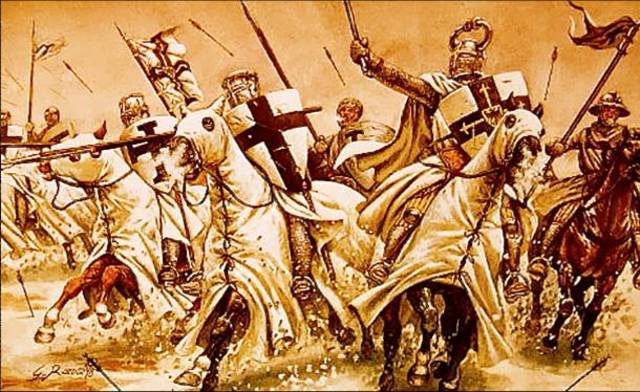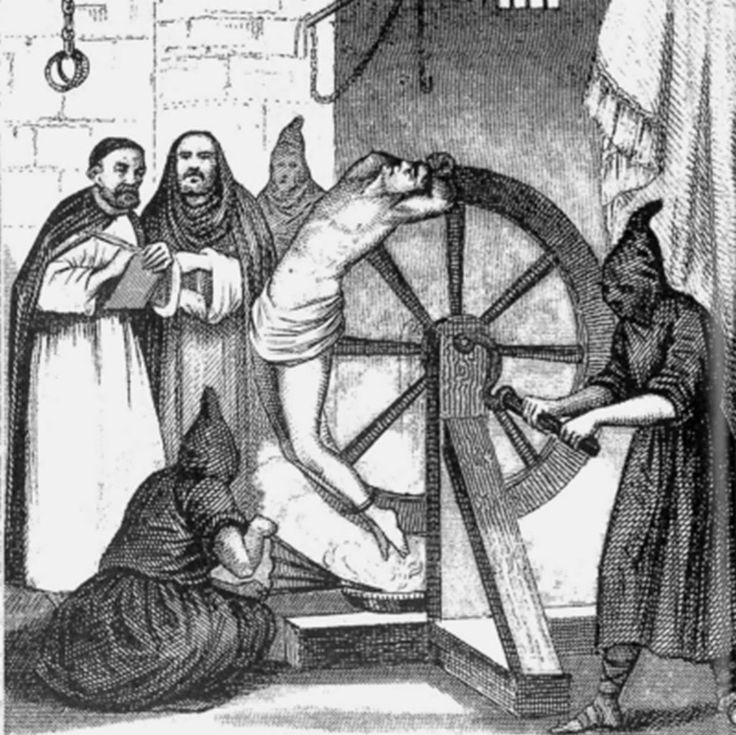I've mentioned several times that there was a popular belief that Nero would return from the dead and bring about the end of the world. That is the context and time period of when Revelation (singular, not Revelations in the plural) was written. There was other contemporary apocalyptic literature of the same time period viewing Nero returning in the same way Revelation does. From that article I strongly suggest you read through:I don't know, but Nero lived in the 60s B.C., prior to the destruction of Jerusalem, which was central to Revelations, and Revelations was supposedly written late in the 1st century.
After Nero's suicide in AD 68, there was a widespread belief, especially in the eastern provinces, that he was not dead and somehow would return (Suetonius, LVII.1; Tacitus, Histories II.8; Dio, LXVI.19.3). Suetonius relates how court astrologers had predicted Nero's fall but that he would have power in the East (XL.2). And, indeed, at least three false claimants did present themselves as Nero redivivus (resurrected). The first, who sang and played the cithara or lyre and whose face was similar to that of the dead emperor, appeared the next year but, after persuading some to recognize him, was captured and executed (Tacitus, II.8). Sometime during the reign of Titus (AD 79-81) there was another impostor who appeared in Asia and also sang to the accompaniment of the lyre and looked like Nero but he, too, was exposed (Dio, LXVI.19.3). Twenty years after Nero's death, during the reign of Domitian, there was a third pretender. Supported by the Parthians, who hardly could be persuaded to give him up (Suetonius, LVII.2), the matter almost came to war (Tacitus, I.2). Such fidelity no doubt can be attributed to the magnificent reception (and restoration of Armenia) that Tiridates, the brother of the Parthian king, had received from Nero in AD 66 (Dio, LXII.1ff).
As popular belief in Nero's actual return began to fade, he no longer was regarded as an historic figure but an eschatological one. The Martyrdom and Ascension of Isaiah dates to the end of the first century AD and is one of the apocalyptic pseudepigrapha of the Old Testament. In an interpolation, the so-called Testament of Hezekiah, Isaiah prophesies the end of the world, when Beliar (Belial) the Antichrist will manifest himself as the incarnation of the dead Nero.
Nero also possesses the attributes of the Antichrist in the Sibylline Oracles, a collection of Jewish and Christian apocalyptic verses attributed to the prophecies of the ancient Sibyl, who identifies herself as a native of Babylon (III.786; also Lactatius, Divine Institutes, I.6) and a daughter (or daughter-in-law) of Noah (III.808ff). In Oracle V, which dates to the late first or early second century AD, Nero has become a resurrected and demonic power symbolic of Rome, itself. "One who has fifty as an initial [the Hebrew letter "N"] will be commander, a terrible snake [the serpent or dragon], breathing out grievous war....But even when he disappears he will be destructive. Then he will return declaring himself equal to God" (V.28ff). Here, Nero is manifested as the Antichrist, "that man of sin [lawlessness]...who opposeth and exalteth himself above all that is called God...shewing himself that he is God" (II Thessalonians II.3-4).
The Sibyl presents Nero both as king of Rome (Oracle V, 138ff) and the means of God's retribution in destroying it (365). A matricide and megalomaniac, who presumed to cut through the isthmus of Corinth and was perceived as responsible for the destruction of the Jewish Temple in AD 70, Nero "will come from the ends of the earth" (363) as a champion of the East and an instrument of God's punishment. He will overthrow tyrants and "raise up those who were crouched in fear" (370) before falling in a final battle against the West. Then there will be peace and "no longer will anyone fight with swords or iron or with weapons at all" (382ff). In this expectation, as in Oracle IV (119ff, 1137ff) and Oracle VIII (70ff, 153ff), one perceives the hope raised by the False Neros among the oppressed provinces of the East.
The Christian poet Commodian (fl. AD 260) also writes of the Antichrist, when Nero will return from hell.
Source: Nero as the AntichristAs popular belief in Nero's actual return began to fade, he no longer was regarded as an historic figure but an eschatological one. The Martyrdom and Ascension of Isaiah dates to the end of the first century AD and is one of the apocalyptic pseudepigrapha of the Old Testament. In an interpolation, the so-called Testament of Hezekiah, Isaiah prophesies the end of the world, when Beliar (Belial) the Antichrist will manifest himself as the incarnation of the dead Nero.
"And after it [the world] has been brought to completion, Beliar will descend, the great angel, the king of this world, which he has ruled ever since it existed. He will descend from his firmament in the form of a man, a king of iniquity, a murderer of his mother—this is the king of the world—and will persecute the plant which the twelve apostles of the Beloved will have planted; some of the twelve will be given into his hand. This angel, Beliar, will come in the form of that king, and with him will come all the powers of this world, and they will obey him in every wish....And he will do everything he wishes in the world; he will act and speak like the Beloved, and will say, 'I am the Lord, and before me there was no one.' And all men in the world will believe in him" (IV.1-8).
Beliar will perform miracles and seduce the followers of Christ until, at the Second Coming, "the Lord will come with his angels and with the hosts of the saints from the seventh heaven, and will drag Beliar, and his hosts also, into Gehenna [the figurative equivalent of hell]."
Nero also possesses the attributes of the Antichrist in the Sibylline Oracles, a collection of Jewish and Christian apocalyptic verses attributed to the prophecies of the ancient Sibyl, who identifies herself as a native of Babylon (III.786; also Lactatius, Divine Institutes, I.6) and a daughter (or daughter-in-law) of Noah (III.808ff). In Oracle V, which dates to the late first or early second century AD, Nero has become a resurrected and demonic power symbolic of Rome, itself. "One who has fifty as an initial [the Hebrew letter "N"] will be commander, a terrible snake [the serpent or dragon], breathing out grievous war....But even when he disappears he will be destructive. Then he will return declaring himself equal to God" (V.28ff). Here, Nero is manifested as the Antichrist, "that man of sin [lawlessness]...who opposeth and exalteth himself above all that is called God...shewing himself that he is God" (II Thessalonians II.3-4).
The Sibyl presents Nero both as king of Rome (Oracle V, 138ff) and the means of God's retribution in destroying it (365). A matricide and megalomaniac, who presumed to cut through the isthmus of Corinth and was perceived as responsible for the destruction of the Jewish Temple in AD 70, Nero "will come from the ends of the earth" (363) as a champion of the East and an instrument of God's punishment. He will overthrow tyrants and "raise up those who were crouched in fear" (370) before falling in a final battle against the West. Then there will be peace and "no longer will anyone fight with swords or iron or with weapons at all" (382ff). In this expectation, as in Oracle IV (119ff, 1137ff) and Oracle VIII (70ff, 153ff), one perceives the hope raised by the False Neros among the oppressed provinces of the East.
The Christian poet Commodian (fl. AD 260) also writes of the Antichrist, when Nero will return from hell.
"Then, doubtless, the world shall be finished when he shall appear. He himself shall divide the globe into three ruling powers, when, moreover, Nero shall be raised up from hell, Elias shall first come to seal the beloved ones; at which things the region of Africa and the northern nation, the whole earth on all sides, for seven years shall tremble. But Elias shall occupy the half of the time, Nero shall occupy half. Then the whore Babylon, being reduced to ashes, its embers shall thence advance to Jerusalem; and the Latin conqueror shall then say, I am Christ, whom ye always pray to; and, indeed, the original ones who were deceived combine to praise him. He does many wonders, since his is the false prophet" (Instructions, XLI).
.......
Nero, too, was the sixth emperor, counting from Julius Caesar (as did Suetonius, for example, and Josephus, cf. Antiquities of the Jews, XVIII.2.2, where Tiberius is identified as the third). "And there are seven kings: five are fallen, and one is, and the other is not yet come" (Revelation 17:10). The sixth (and last) of the Julio-Claudian emperors, it is Nero who "is" but who has been "wounded to death; and his deadly wound was healed" (13:3)—Nero redivivus.
.......
Nero, too, was the sixth emperor, counting from Julius Caesar (as did Suetonius, for example, and Josephus, cf. Antiquities of the Jews, XVIII.2.2, where Tiberius is identified as the third). "And there are seven kings: five are fallen, and one is, and the other is not yet come" (Revelation 17:10). The sixth (and last) of the Julio-Claudian emperors, it is Nero who "is" but who has been "wounded to death; and his deadly wound was healed" (13:3)—Nero redivivus.
Also, please read this that shows when and for how long this belief that Nero would rise from the dead persisted back then. And bear in mind Revelation was written at that very time period, and fits the literature of the day. Nero Redivivus legend - Wikipedia
Yes indeed. And what is his commandment, but to love? "Love works no ill. Love is the fulfillment of the law". "Love God with all your heart, mind, soul, and strength, and love your neighbor as yourself, for on these two commandments hang all the law and the prophets". The commandment Jesus gave was to love. Not to pray for the end of the world so you can get your rewards as the special chosen one.As for how one is to "love" according to Yeshua, well he said one was to "keep the commandments". (John 14:21) and (1 John 1:6)
I mean God's Love, or agape Love. Do you know what that is like?As for what this adulterous generation believes is love, apparently that is to fornicate with their neighbor's wife, or in today's world of demons, thy neighbor's male partner. (Matthew 16:4)




